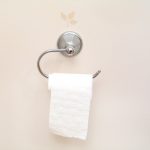 Millions of North Americans have bladder issues. In fact, it is one of the most common medical problems. We just may not hear a lot about it because people find it embarrassing.
Millions of North Americans have bladder issues. In fact, it is one of the most common medical problems. We just may not hear a lot about it because people find it embarrassing.
Bladder issues can have a huge impact on a person’s life. It can be uncomfortable, stressful, lead to sleepless nights, and restrict a lot of the activities a person would normally enjoy. The good news though…there are ways to avoid embarrassing bladder issues.
Bladder Issues Can Do Damage to Your Social Life
Advertisement
Bladder problems
There is a wide range of bladder related problems including: Leakage of urine, wets pants when you sneeze or cough, incomplete emptying of bladder, burning or discomfort when passing urine, loss of urine control, and slow urine stream. The cause could be physical or psychological. Some of these problems are related to aging or nerve damage, while in other cases it is simply a matter of diet.
Preventing problems
Many people are surprised to hear that diet plays a big role in how much you urinate. Foods, such as fruits and vegetables that are high in vitamin C could trigger your bladder and cause you to pass urine more often. Why? Vitamin C has diuretic properties. Salads, Coleslaw and freshly squeezed fruit juice are examples of this. Keep in mind that even though vegetables and fruits that are high in Vitamin C may cause more frequent urination, you must include them in your diet; just be careful about the amount you consume.
Coffee, tea, pop and alcohol are other items you want to limit in your diet. They also cause frequent urination. Studies show that caffeine is a major trigger for the bladder. Food products like coffee and chocolate act as a diuretic.
Although more research is needed to understand exactly why; some studies indicate that artificial sweeteners irritate the bladder and may lead to more leakage and urination.
Unexpected damage
The nerves and muscles that control both the bladder and the bowel can receive damage. This damage causes some of the bladder issues mentioned above. Some of the damage is created by holding your urine when you have to go. There are also situations where the sphincter muscle sustains damage. An exercise known as “kegals” can strengthen the muscle and provide you with better bladder control. Another approach that many urologists use is called bladder training. These are programs that train your bladder to work at certain times of the day. There is also something called “stimulation therapy”. According to John Hopkins Medical Centre, this therapy stimulates the nerves that have damage and gives you better muscle control, and control over both urine and feces.
Advertisement
Psychological factor
When people are under extreme stress, are feeling anxious or upset, it can be difficult for them to go to the washroom. In these cases therapy may be required. In extreme cases, some people are diagnosed with “Paruresis”. This is a social anxiety disorder whereby the sufferer experiences an unpleasant situation then has difficulty urinating. It is perpetuated by the fact that the person constantly worries about not being able to go to the bathroom. Cognitive therapy is often effective.
Family practitioners and urologists agree that diet and exercise has made a huge difference for people who have experienced bladder issues. Many gynecologists encourage women to take up “kegal” exercises following the birth of their children to strengthen muscles due to bladder damage and they encourage other exercises to keep the muscles strong. They do say that while aging plays a role in bladder problems, you can avoid most embarrassing bladder moments with a few lifestyle adjustments.
